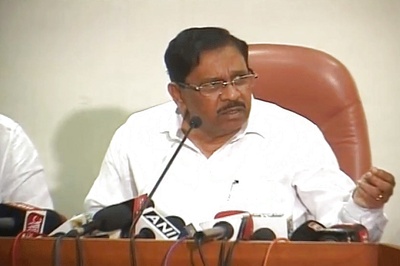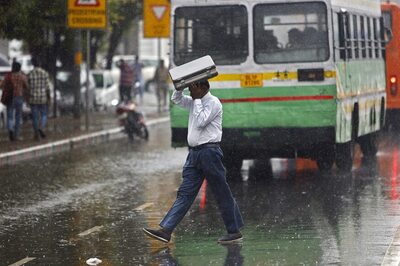
views
New York: Prime Minister Narendra Modi on Monday said his government has taken some "historic steps" like the world's largest health insurance scheme - Ayushman Bharat - to provide access to affordable health care services to all.
Addressing the first-ever high-level meeting on Universal Health Coverage here, Prime Minister Modi said, "World welfare begins with people's welfare, and health is an important component of it. And in line with this global principle, India is laying great emphasis on health."
The summit was held to launch new efforts to provide access for all to affordable, inclusive and resilient health systems. Modi said India has taken a multi-sectoral approach towards the health sector, and are focusing on its four main pillars - preventive health, affordable healthcare, supply side interventions and mission mode intervention.
He underlined that an important part of his government's preventive healthcare is Yoga, Ayurveda and the recently started Fit India Movement. With the help of these, he said, lifestyle diseases such as diabetes, blood pressure, depression etc., can be controlled.
Modi also told the summit that the government's 'Clean India Campaign' has created awareness among the people of India, and has increased the possibility of saving hundreds of thousands of lives.
Another dimension of India's preventive healthcare programme is the setting up of more than 125,000 wellness centres and the country is also laying special emphasis on immunization, he emphasised. "Other than with introducing new vaccines, we have been successful in reaching far-flung areas with our vaccination programmes," he said.
With a view to strengthening the second pillar of healthcare - affordability, Modi said his government has taken historic steps including the world's largest health insurance scheme- Ayushman Bharat, which is being implemented successfully.
Under this scheme, 500 million poor, have been given the facility of free treatment worth up to 500,000 rupees every year, the prime minister said. He said the government has also opened more than 5000 public medicine centres (Jan Aushadhi Kendra), more than 800 varieties of medicines are available at affordable prices.
The government's efforts to ensure affordable healthcare include slashing the cost of stents by 80 per cent and the cost of knee implants cut down by 50 to 70 per cent. Hundreds of thousands of people are also taking advantage of the free dialysis services provided by the government, he said.
On the supply side, Modi said, India's focus has been on establishment of modern institutions for quality medical education. Further, in order to improve the health of women and children, a national nutrition campaign and other new programmes have been launched in mission mode, he said. "A historic increase in seats at medical colleges has been done in India," the prime minister said.
He said while the United Nations has set a deadline of 2030 in its Sustainable Development Goals, for ending the tuberculosis epidemic, the target year that India has set for itself to end TB is 2025.
"Today, there is a new awareness with regard to holistic healthcare. In order to have a healthy body, a healthy environment is a also must. With this understanding, our government has started a campaign against diseases spread due to air pollution and through animals," Modi said.
"Access to not just a disease-free life, but to a healthy life is the right of all people, and for this the onus is on the government and social institutions to prepare and provide necessary services. Under this responsibility, by way of Ayurveda, Yoga and telemedicine, India is increasing access to affordable healthcare to many countries, especially to African countries," he said.
Modi concluded his address with a Sanskrit proverb 'Sarve Bhvantu Sukhin, Sarv Santu Nirmaya' that translates into wishing all happiness, wishing all a disease-free life.
















Comments
0 comment